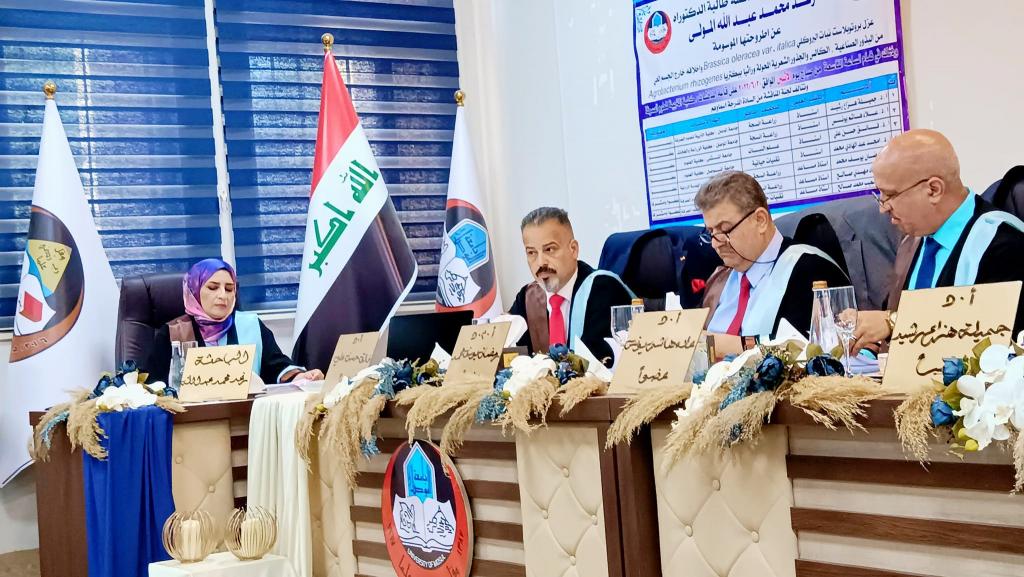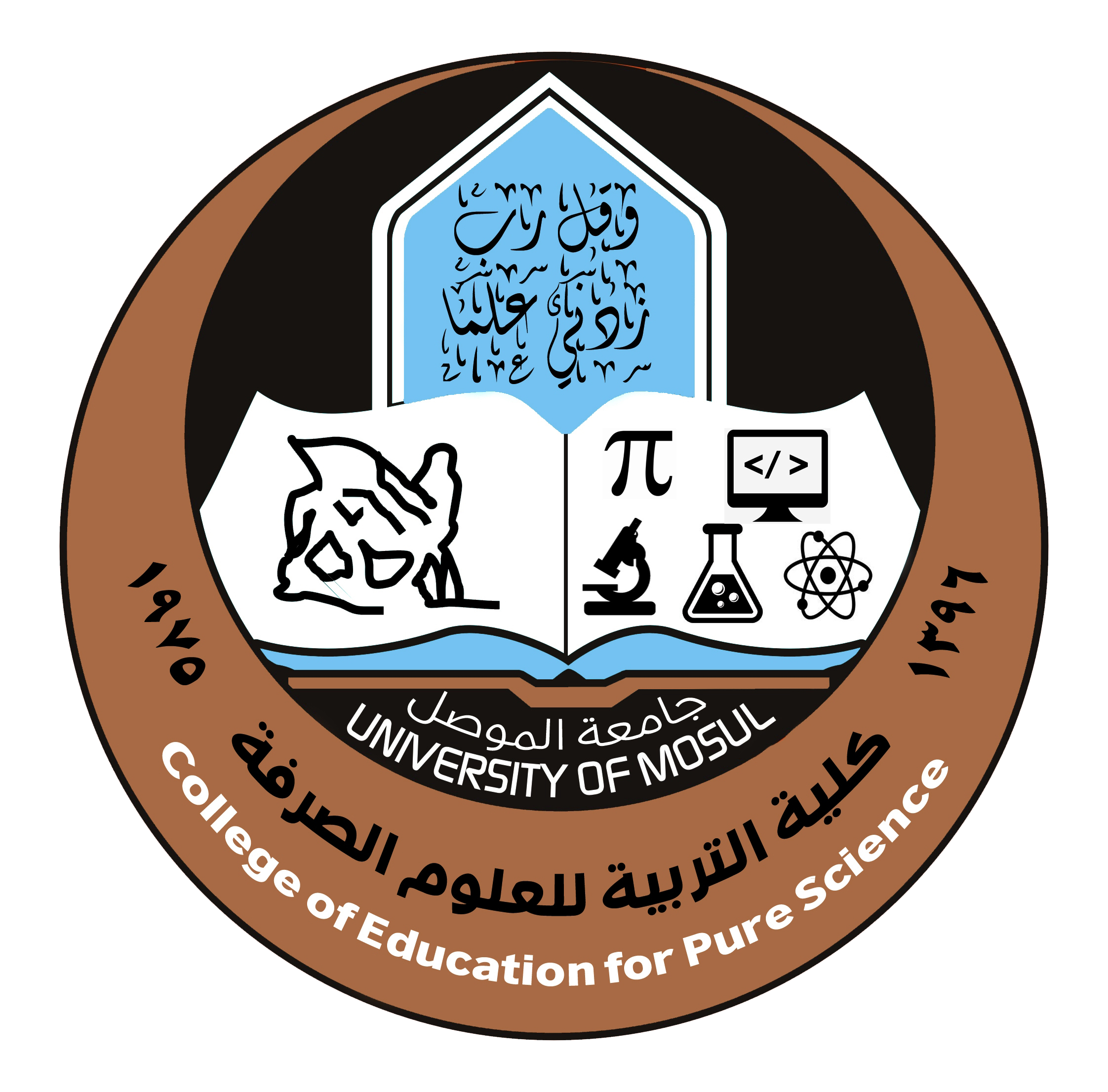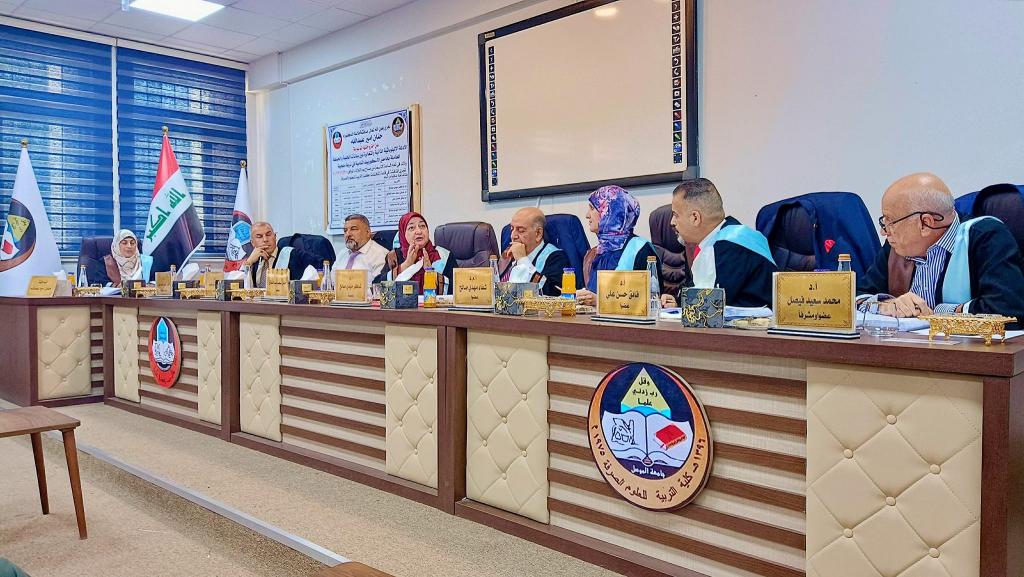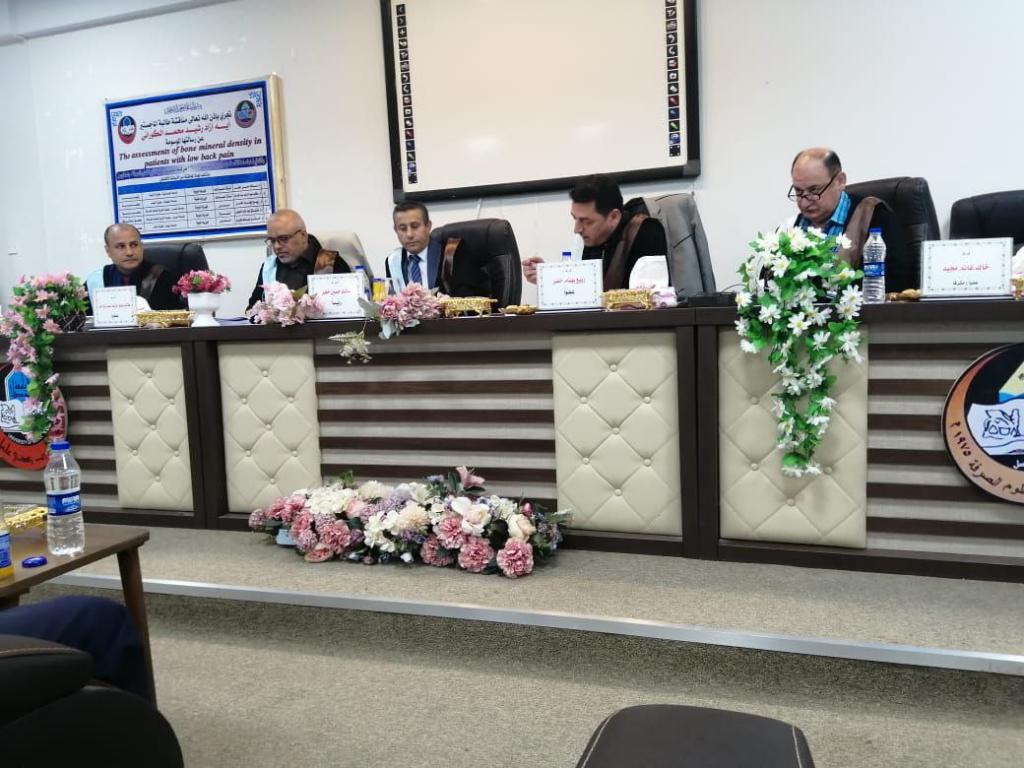20 June، 2022
PH.D. Dissertation Viva-Biology Department

PH.D. Dissertation Viva in the College of Education for Pure Science entitled “Protoplast Isolation of Broccoli Brassica oleracea var. italica and Its In vitro Regeneration from Artifical Seeds, Callus and Trasformed Hairy Roots via Agrobacteriaum rhizogenes”The College of Education for Pure Science, University of Mosul, has done the PH.D. Dissertation Viva entitled “Protoplast Isolation of Broccoli Brassica oleracea var. italica and Its In vitro Regeneration from Artifical Seeds, Callus and Trasformed Hairy Roots via Agrobacteriaum rhizogenes”,On Monday, June 20, 2022, the College staff including the respected Dean of the College, Assistant Professor Dr. Qais Ismail Ibrahim, the Honorable Scientific Associate and Administrative Associate, the Honorable Head of the Department of Biology, and a number of the college’s teachers were attended the viva. This study, presented by the PH.D. student Raghad Mohammed Abdulla Al-Mula in the Department of Biology, broccoli, Brassica oleracea var. italica plants was produced from callus differentiation of seedling explants (root, stem, leaf). Shoots were formed spontaneously by one-step regeneration from stem callus grown on solidified Murashige and Skoog (MS) medium supplemented with 0.5 mg L-1 6-Benzyl adenine (BA) and 0.2 mg L-1 Naphthalene Acetic- Acid ( NAA) and root callus grown on MS medium supplemented with (0.5, 1.5 and 2.0) mg L-1 Thidiazuron (TDZ).These shoots easily rooted on solidified free MSO medium and acclimatized successfully. Somatic embryos were induced from stem’s and root’s callus, as well as from stem and root explants when cultured and maintained on MS medium supplemented with (0.4 and 0.5) mg L-1 TDZ. By culturing the excised embryos on solidified MSO medium, 205 shoots were formed and rooted successfully. This was considered a suitable path for the production of large numbers of broccoli plants.for the appearance of hairy roots in these plants. Protoplasts were isolated from the mesophyll of broccoli plants, Brassica oleracea var. italica using groups of enzyme solutions which showed a variation in the efficiency of isolating protoplasts. The best enzyme solution was consisting of 1.0% Cellulase R-10 and 0.3% Pectinase and in the presence of 10% of manthol, taking 16 hours, which achieved a result of 20 × 105 cell ml-1 had a viability of 93%. The protoplast was spherical in shape and the distribution of chloroplasts varied in it, and its diameters ranged between 15-52 µm. Also, protoplasts were isolated from the genetically transformed hairy roots. Enzyme solution consisting of 1.5% YC Cellulase and 0.1% Y-23 Pectolyase in the presence of 13% mantol was superior. It took 18 hours, and the protoplast yield was 1 x 105 cells ml-1 with a viability of 76%. The protoplast was spherical in shape and its diameters ranged from 5-17.5 µm. Unfortunatly, all attempts related to the culture of the two types of protoplasts by embedding in agarose droplets using KM8p and MS media were unsuccessful. The Viva committee was chaired by Prof. Dr. Jamila Hazaa Rashid, University of Mosul / College of Education for Pure Sciences, and the membership of Prof. Dr. Alaa Hashem Younes: University of Mosul / College of Agriculture and Forestry, Prof. Dr. Faeq Hassan Ali University of Mosul / Science Botany, Prof. Dr. Amjad Abdul-Hadi Muhammad University of Mosul / Science and Life Technologies. Asst. Prof. Dr. Ramadan Youssef Mohamed Salah El-Din University/Faculty of Agricultural Engineering Science and under the supervision and membership of both Asst. Prof. Dr. Shifa Mahdi Saleh University of Mosul / College of Education for Pure Sciences and Asst. Prof. Dr. Qutaiba Shuaib Muhammad Salih University of Mosul / College of Education for Pure Sciences.








